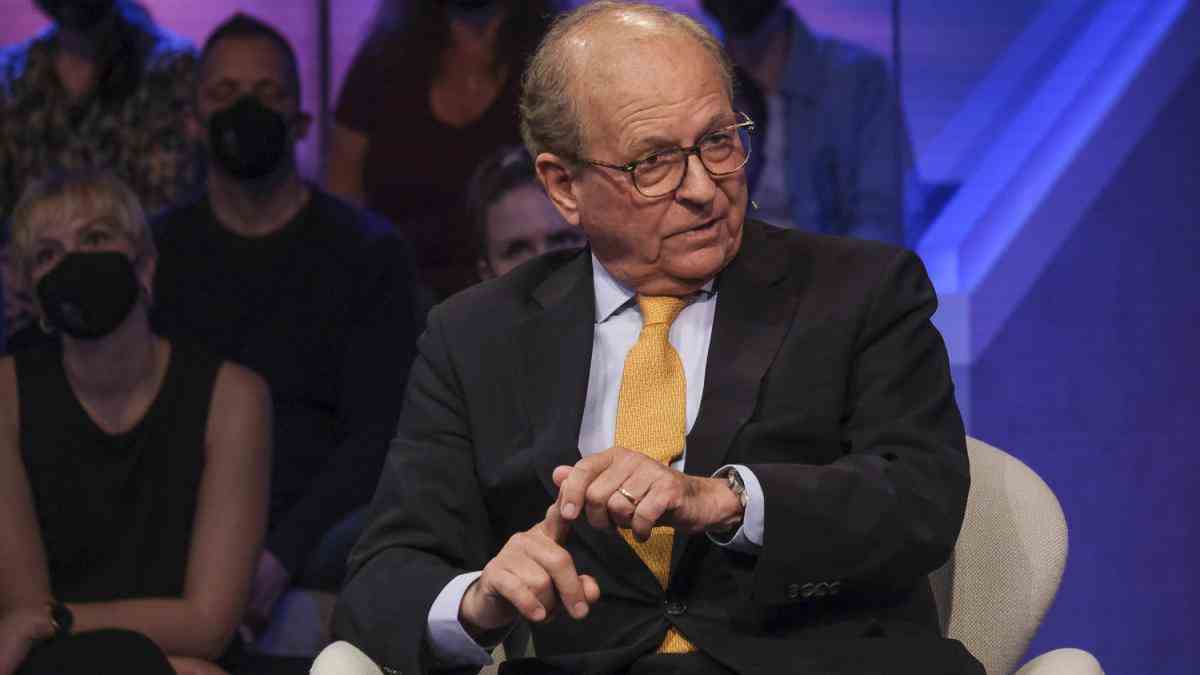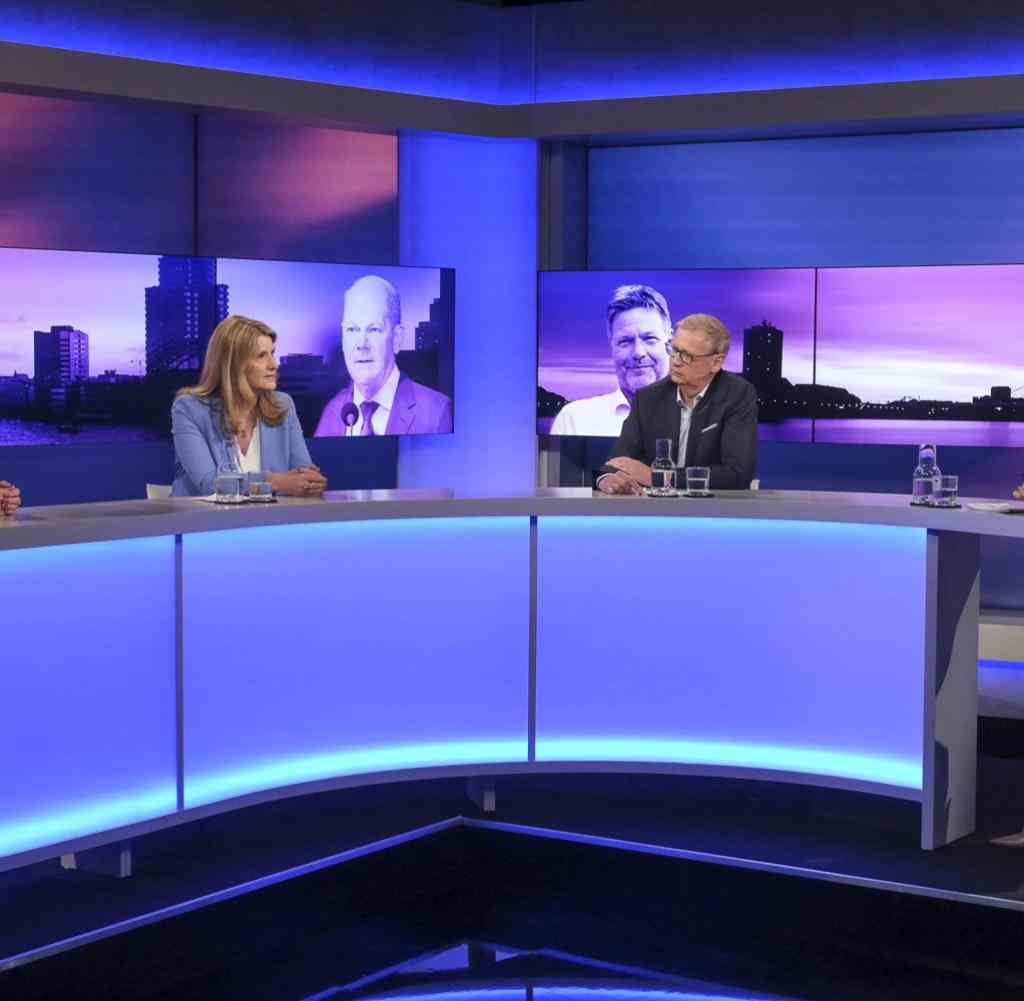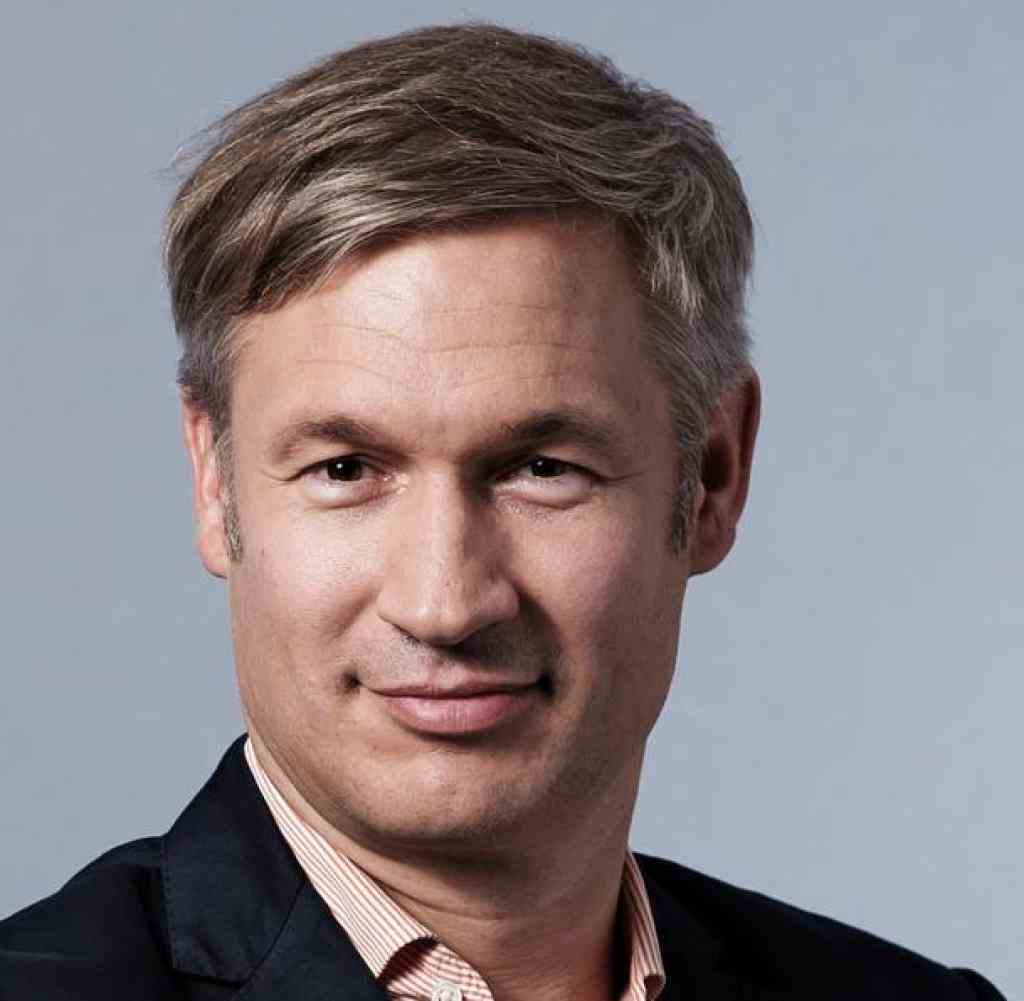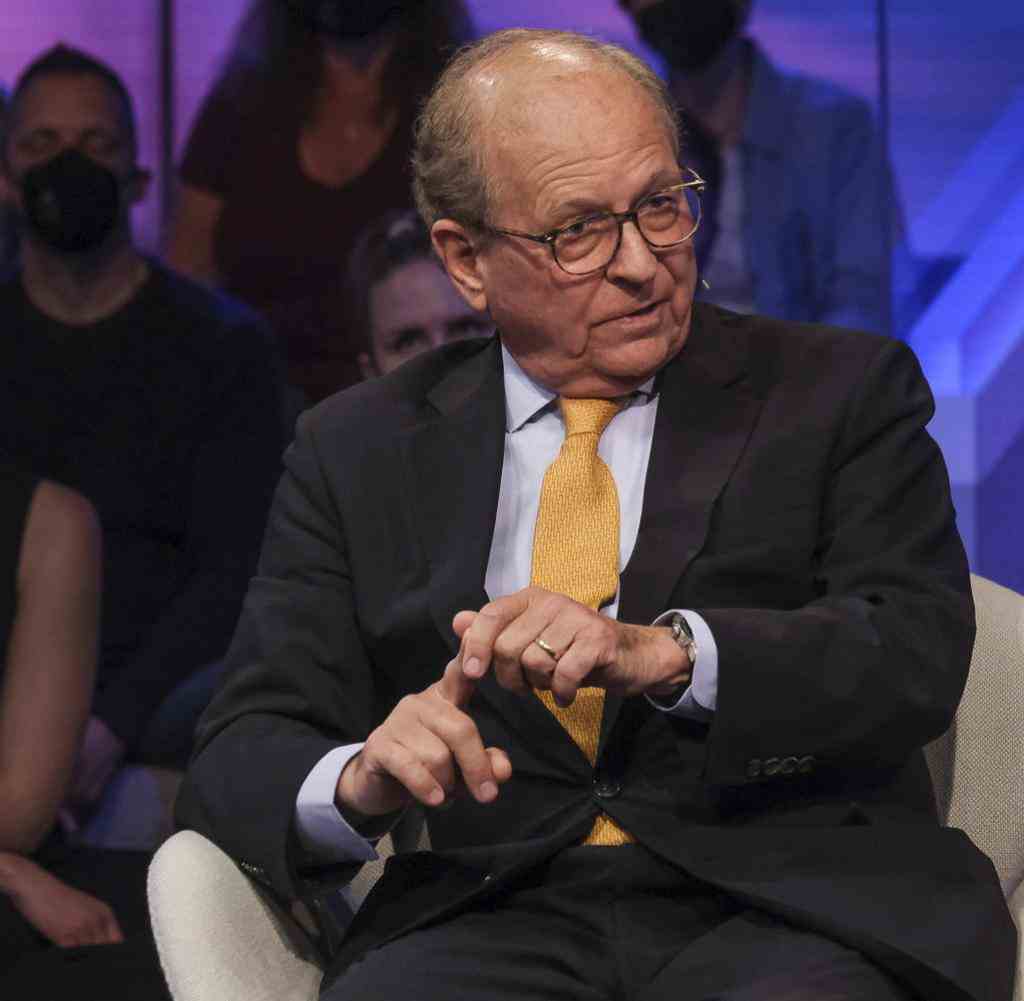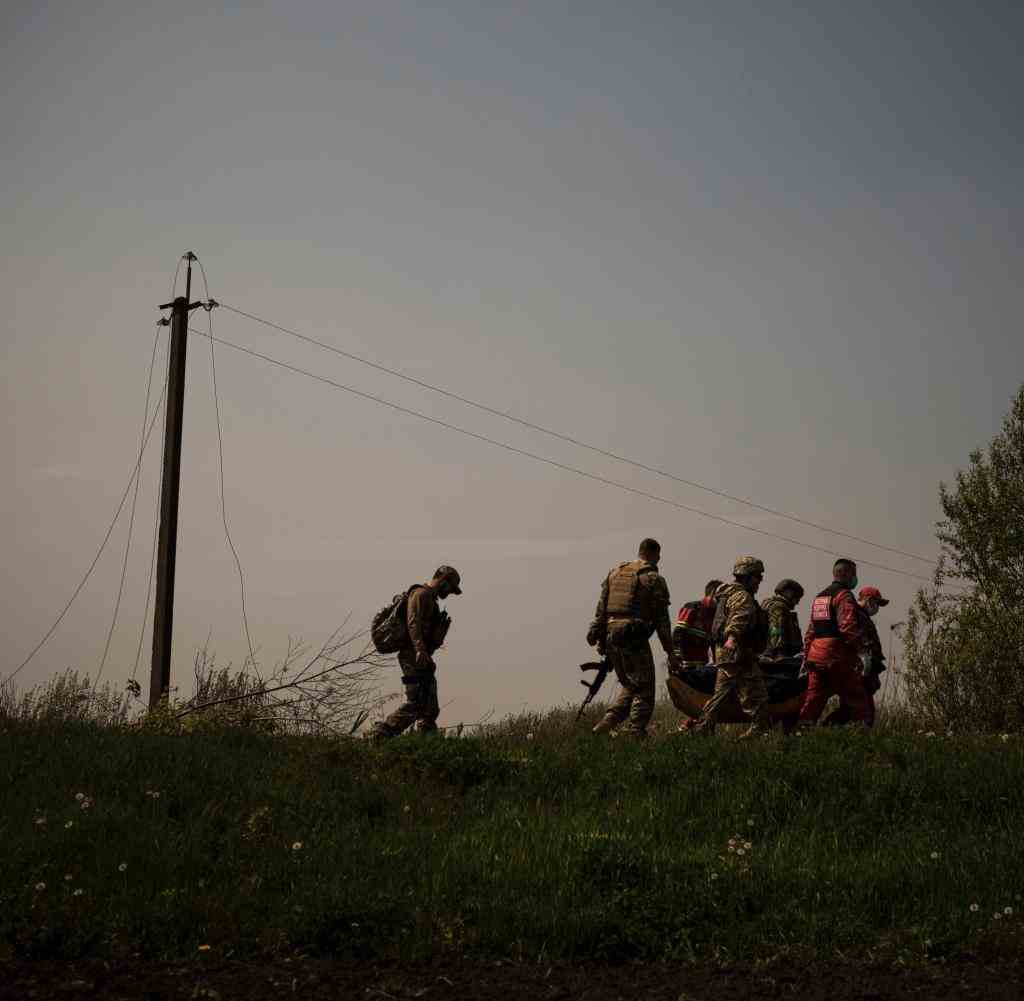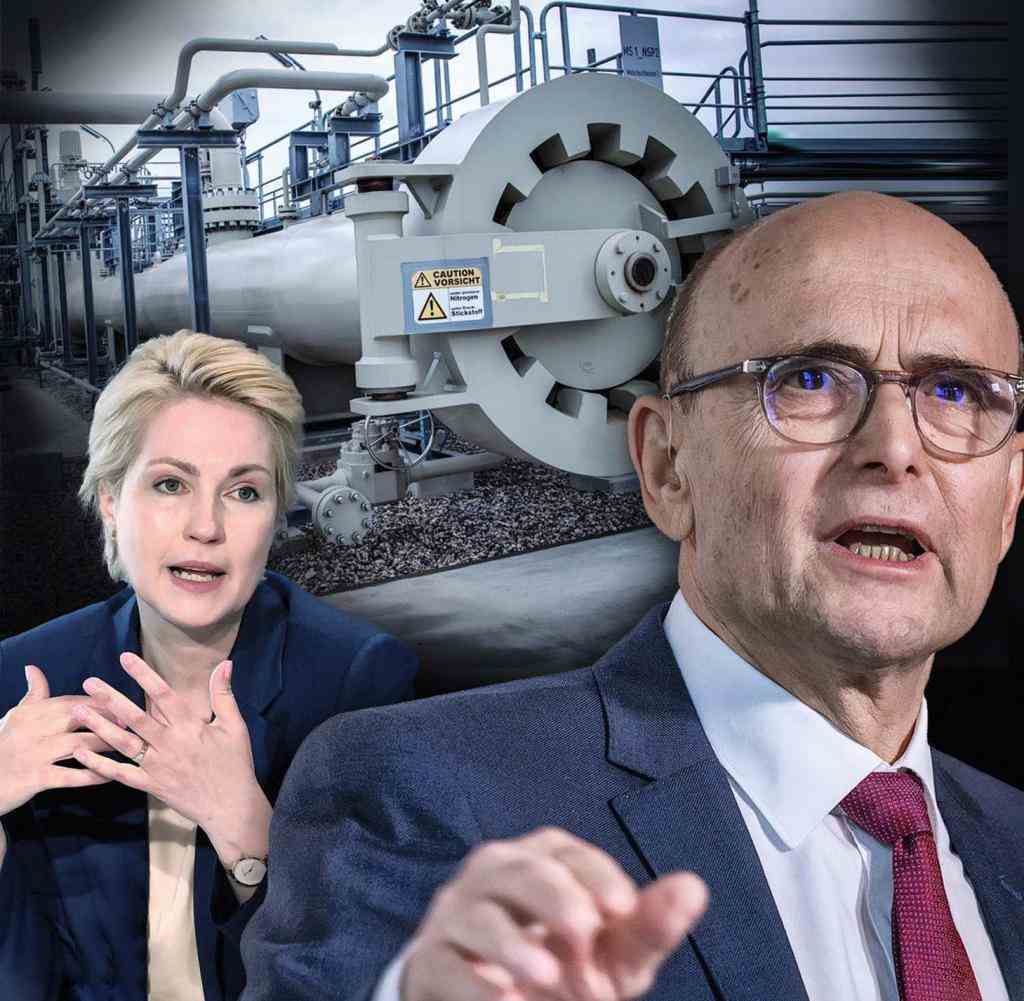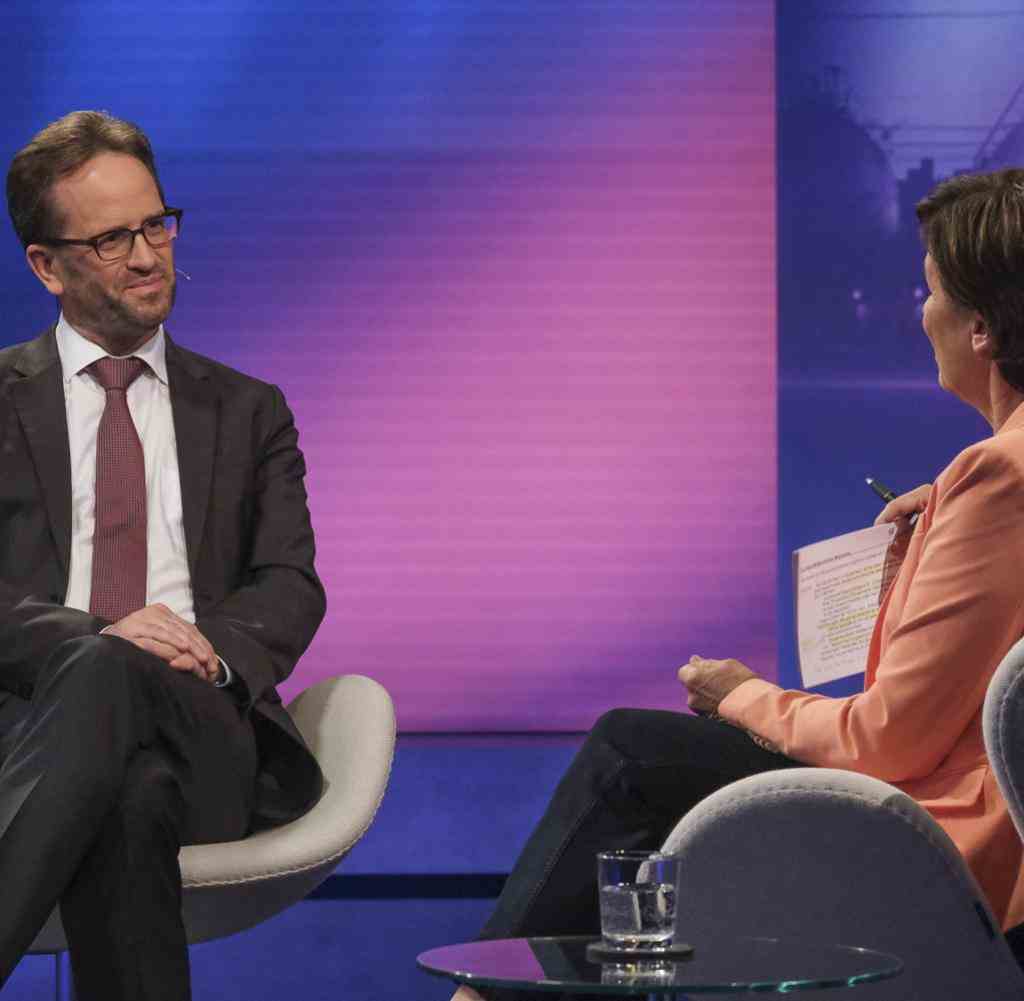Dhe poor performance of the SPD in the state elections in North Rhine-Westphalia (NRW), the Ukraine war and the consequences of the energy crisis were the topics of “Maischberger”. TV presenter Günther Jauch, head of the ARD capital city studio Tina Hassel and FAZ parliamentary correspondent Helene Bubrowski discussed the NRW election in the studio.
The former ambassador and head of the Munich Security Conference, Wolfgang Ischinger, shared his assessment of the current situation in the Ukraine war. Klaus Müller, head of the Federal Network Agency, explained a possible scenario in the event of a gas embargo and appealed to all gas users to act now. Ifor Volobuyev, former deputy head of Gazprombank, was supposed to be connected – but the connection did not come about during the broadcast.
The historically poor performance of the SPD in the most populous federal state is also a gossip for the Chancellor, said Günther Jauch. “Scholz leaned far out of the window during the election campaign. It was on every second SPD election poster.” For many years, NRW had been a homeland of the Social Democrats, said FAZ journalist Helene Bubrowski. “Scholz can’t just duck away now.”
Defense Minister Christine Lambrecht also harmed the party, said ARD journalist Tina Hassel. The helicopter affair “was just the icing on the cake, reinforcing the impression of a woman who has no flair for performance and doesn’t really care about the troupe.”
Brubowski pointed out that Lambrecht had already attracted negative attention as Federal Minister of Justice under Angela Merkel. She provided SPD comrades with high posts in the ministry. Even among the officials she does not have a good reputation.
Discussing (from left to right): “FAZ” journalist Helene Bubrowski, ARD journalist Tina Hassel, TV presenter Günther Jauch and Sandra Maischberger
Source: ARD/© WDR/Oliver Ziebe
“In the meantime, she has only become Minister of Self-Defense,” said Günther Jauch. So is Christine Lambrecht resigning? “Would be an idea, but politicians generally have a hard time with that,” said Jauch.
“That would look too hectic and is not the Scholz method”
Tina Hassel does not currently believe in another change in the ministries, as was the case recently with Anne Spiegel. “That would look too hectic and is not Scholz’s method.” The Chancellor did not let himself be driven. “Then he remains rather stubborn. Maybe too long,” said Hassel.
The CDU had won the North Rhine-Westphalia elections and also the state elections in Schleswig-Holstein. Has party leader Friedrich Merz put the Christian Democrats back on the road to success? “Anyone who wins two state elections in eight days can justifiably tweet: The CDU is back,” said Hassel.
Nevertheless, the Merz method was questioned because the election winners in North Rhine-Westphalia and Schleswig-Holstein pursued completely different political strategies than Friedrich Merz. According to Günther Jauch, he felt a “slight bitterness” when looking at the NRW elections and Ukraine.
Voter turnout in NRW was a historically low 55.5 percent. “In Ukraine, people thirst for democracy and risk their lives for it. And with us, people just stay at home and throw the basic democratic right in the bin, ”said the TV presenter.
The war in Ukraine has been going on for twelve weeks. Security expert Wolfgang Ischinger is skeptical about a quick end to the fighting. Although Russia was not able to realize its original war goals, “the majority of Ukraine is free.” But now it is primarily about a “war of position”, a “war of attrition”. This could take a long time.
Wolfgang Ischinger, former head of the Munich Security Conference
Source: ARD/© WDR/Oliver Ziebe
“Therefore, the goal must now be: Continue to prevent the implementation of the Russian goals. And help Ukraine to successfully defend its borders and its existence,” said Ischinger, who chaired the Munich Security Conference – perhaps the world’s most renowned meeting on foreign and security policy – from 2008 to 2022.
“No Russian need fear that NATO will march across the Finnish border”
Ischinger believes that the planned entry of Finland and Sweden into NATO could even stabilize the situation. “No Russian need fear that NATO will march across the Finnish border,” he said. After all, NATO is a defensive alliance.
In addition, the admission of Ukraine to NATO must be considered. Ischinger: “After what the Russians have now done, one would have to say: now we’re really bringing Ukraine into NATO.” Without NATO membership, security guarantees would not be credible, he said. “After all the horrible events, who is going to give this country the security guarantees it needs if peace is ever made?”
The Russian war of aggression has dragged a large part of the western world into the crisis. Germany is still dependent on Russian supplies, especially for natural gas. What happens if Russia turns off the gas tap or Germany decides on a gas embargo? What happens in a “gas emergency”?
“Now Russian gas is a problem”
“I have a lot of worry lines on my forehead,” said Klaus Müller, head of the Federal Network Agency. The federal authority reports to the Ministry of Economic Affairs and is responsible for market regulation of electricity and gas, for example. 30 million private households and many branches of industry in Germany depend on natural gas for heating.
It is true that Germany has a comparatively large storage capacity for gas, and these storage facilities are currently 42 percent full. But: “It’s not good and reassuring,” said Müller, Green politician and former environment minister in Schleswig-Holstein. “Now Russian gas is a problem and can go to zero, so the storage tanks have to be filled.”
If an emergency occurs and the security of supply is endangered, then a European regulation regulates: private households, hospitals, the police and retirement homes are among the groups that are particularly worthy of protection and should not be switched off. The Federal Network Agency is currently in discussion with 2,500 companies, which account for the majority of industrial gas consumption, said Müller. They are used to see where reductions would have to be made if there was a gas emergency.
Federal Network Agency boss Klaus Müller
Source: ARD/© WDR/Oliver Ziebe
The federal government wants climate protection, he said. “But because of the current situation because of the Russian war of aggression, we are forced to take a detour.” This leads “for a limited time via liquid gas.” For example, Federal Economics Minister Robert Habeck negotiated a deal with Qatar about liquid gas. The gas is not delivered via pipelines but by ships.
In addition, every citizen must ask themselves out of “solidarity ideas” how they can reduce their gas consumption, said Müller. Of course, he cannot dictate how often someone can take a shower with gas-heated water. The dilemma is that people first have to notice something in order to change their consumption. “Most people know where the price of gas is. But very few people know where the gas price is today,” said Müller.
One thing is clear: “If they are equipped with a gas heater, then their heating bills will be immensely expensive.” In the months after the start of the war, there was still no visible action among the population, said Müller. “So far we have not been able to see that people are already doing without and that less gas is being used.”

